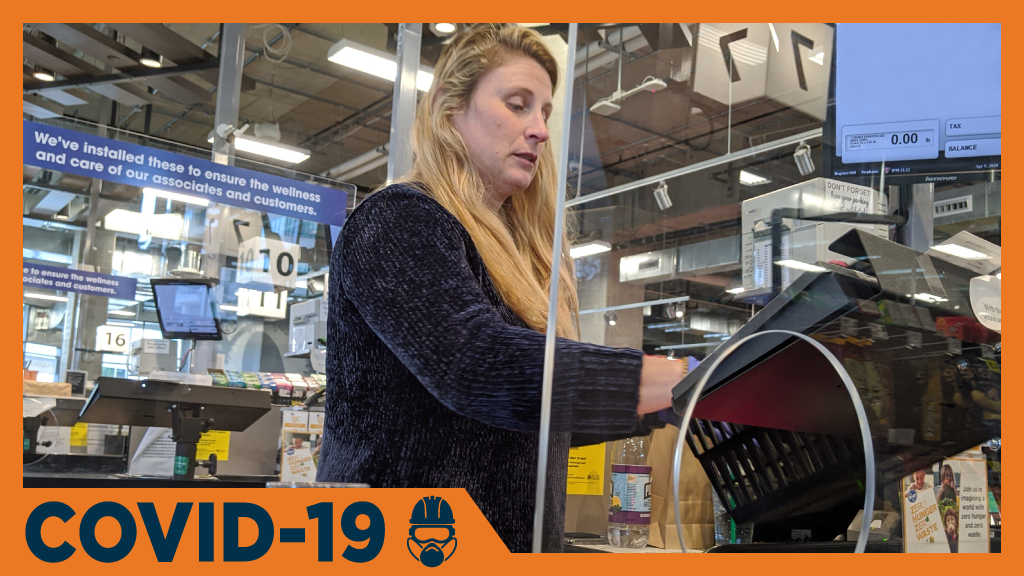When the coronavirus first made headlines in Ontario contractors scrambled to shut down jobs, but some saw a potential silver lining.
One of the new opportunities arising from the outbreak was the design and installation of plexiglass screen protectors between employees and customers at supermarket chains.
“This was never really an area of work for us but it erupted into one,” says Joseph Zamparo, president of IFI, an interior general contractor primarily working in the retail grocery sector.
The screens separate cashiers, pharmacists and customer service personnel from customers. IFI landed installations in about 110 of the roughly 400 Loblaw stores in Ontario, says Zamparo.
The general contractor, which in normal times often does supermarket interior renovations, shuttered jobs when the virus hit, but Zamparo didn’t want to lay off staff. The contractor teamed up with Loblaw’s to design a template for a plexiglass screen that could be easily installed between customers and supermarket employees.
“It’s been a good solution,” he says.
IFI is one of several contractors hired to install the protectors in grocery stores across the province. Another is BMI Construction, which landed contracts in about 300 stores in Ontario.
Brendon Watts, BMI’s construction manager, says at the beginning of the outbreak, BMI started closing its construction projects as a health and safety precaution and focussed on rollouts of the plexiglass screen protectors.
“It was great because it kept our guys working,” says Watts, who employed a crew of about 20 carpenters from the Carpenters’ Union Local 27 in Toronto for the installations.
While other contractors were facing diminishing crews as fears of the outbreak heightened, nearly all of BMI’s workers stayed on to do the protective screen installations.
“We made sure every worker was protected,” Watts says, noting BMI supplied each worker with PPE such as gloves, masks and sanitizers.
Carpenters worked in pairs, practising social distancing when possible.
He says his crew was quick to jump on board in part because they saw it as “good work to help protect frontline workers.”
While some installations were straightforward bolt-in-place jobs, others required onsite modifications. “There are so many stores with so many checkouts, different layouts,” he explains.
To eliminate disruptions during store hours, crews worked on several unused checkout lanes at a time, says Watts.
“The guys were never in close contact with the customers,” he adds.
Zamparo says the supply of plexiglass has been limited largely because of the demand from retail and health care sectors throughout North America.
“Now when you order it, it is like precious metal,” he says, noting the raw material is manufactured in sheets in the U.S. before being processed by other companies to meet food store requirements.
The plexiglass contract is good business in the short term, but Zamparo sees bigger things on the horizon in food chains.
He suggests design overhauls which separate staff from customers not only in food markets but in all retail sectors could be on tap.
Zamparo believes food delivery systems by the chains will increase and changes could be coming in how supermarkets operate.
“I think you’re going to see an Amazon-type attitude towards grocery retail,” he states.
Watts agrees, suggesting new large distribution centres could be on the horizon.
“Where this is going is anybody’s best guess,” he says.











Recent Comments